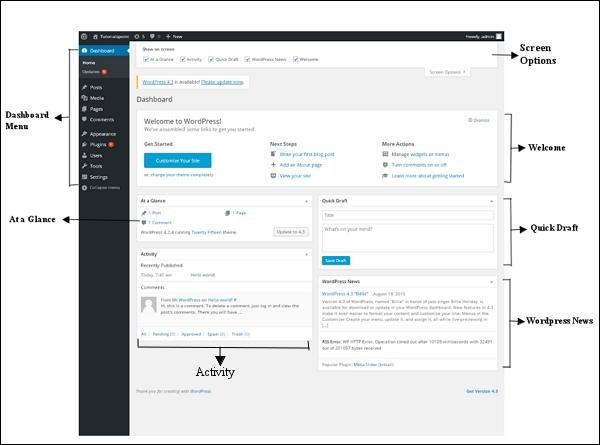Even before launching your own blog, one choice you will need to make is to decide which blogging platform to use. WordPress, Blogger, Tumblr, Wix, Medium, Squarespace, Ghost, Weebly, Joomla, and Drupal are a few examples of well-known platforms.
It’s important to do your research and pick the platform that best meets your needs and goals because every platform has its unique features and advantages.
However, if you are a beginner, who simply want to blog without going into the complexities in website building, then you should consider WordPress or Blogger.
Overview of the 10 Popular Blogging Platforms to Consider
1. WordPress: WordPress is an open-source content management system considered to be the most popular blogging platform. More than 40% of all websites on the internet are powered by WordPress. It has a variety of features, including a flexible design environment, an intuitive user interface, and a strong developer and design community producing plugins and themes to make your blog stand out.

2. Blogger: For beginners who want to build their own blog for free, Blogger is your best place to go. It is a user-friendly platform owned by Google. It provides a variety of easy-to-use customizable templates and built-in Google AdSense for faster monetization of your blog. Blogger is super simple. You simply need to drag-and-drop elements to have the design of your choice ready. With blogger, you can get a free website up and running with just a few clicks.
3. Tumblr: Tumblr is an easy-to-use microblogging platform that allows users to post short-form content that focuses on images, videos, and GIFs. It has a large community of users, with an easy-to-use interface. Interestingly, young people dominate Tumblr, which makes it good platform for bloggers targeting them. It also has follow and reblogging features.
4. Wix: Wix is a website builder that offers both drag-and-drop design customization and a range of pre-designed templates. It also offers a range of features such as email marketing tools, SEO optimization and eCommerce functionality. It also has an app store for additional features. With Wix you can build a blog or full-blown websites without any coding knowledge.
5. Medium: Medium is a blogging platform that focuses on quality content and aims to connect readers with the best writers on a given topic. It offers a clean and simple user interface and the ability to easily discover new content. On Medium, writers and bloggers get a good platform to share stories and ideas with a larger built-in audience.
6. Squarespace: Squarespace is also another popular website builder that offers a range of professionally designed templates and drag-and-drop design customization. It also offers a range of features such as eCommerce functionality, SEO optimization, and analytics tools. Like Wix, you don’t need to know coding to set up your website on Squarespace.
7. Ghost: Ghost is a blogging platform that focuses on simplicity and speed. It offers a simple and elegant user interface and the ability to create custom themes and templates. It is very useful for writers and bloggers who want a simple interface with integrated email newsletters.
8. Weebly: Like other drag-and-drop website builders, Weebly offers easy design customization and a range of pre-designed templates. It also offers a range of features such as email marketing tools and eCommerce functionality. Bloggers find Weebly user-friendly and enjoy its built-in SEO and analytics.
9. Joomla: Joomla is an open-source content management system that offers a range of features such as customizable templates, multilingual support, and a large community of developers and designers creating plugins and extensions. However, Joomla is more complex than some of the other platforms listed here. It is meant for more advanced website builders who want more control over their website’s design and functionality.
10. Drupal: Drupal is an open-source content management system that offers a range of features such as customizable templates, multilingual support, and a large community of developers and designers creating plugins and modules. It is known for its robust security features and flexibility. It is often used by larger websites and organizations due to its powerful features and ability to handle large amounts of traffic.
This article titled, 10 Most Popular Blogging Platforms, is a part or a continuation of a full blogging tutorial. To access the full course, or start from the beginning, please go to How to Start a blog and succeed: A Complete Blogging Tutorial or click HERE.
